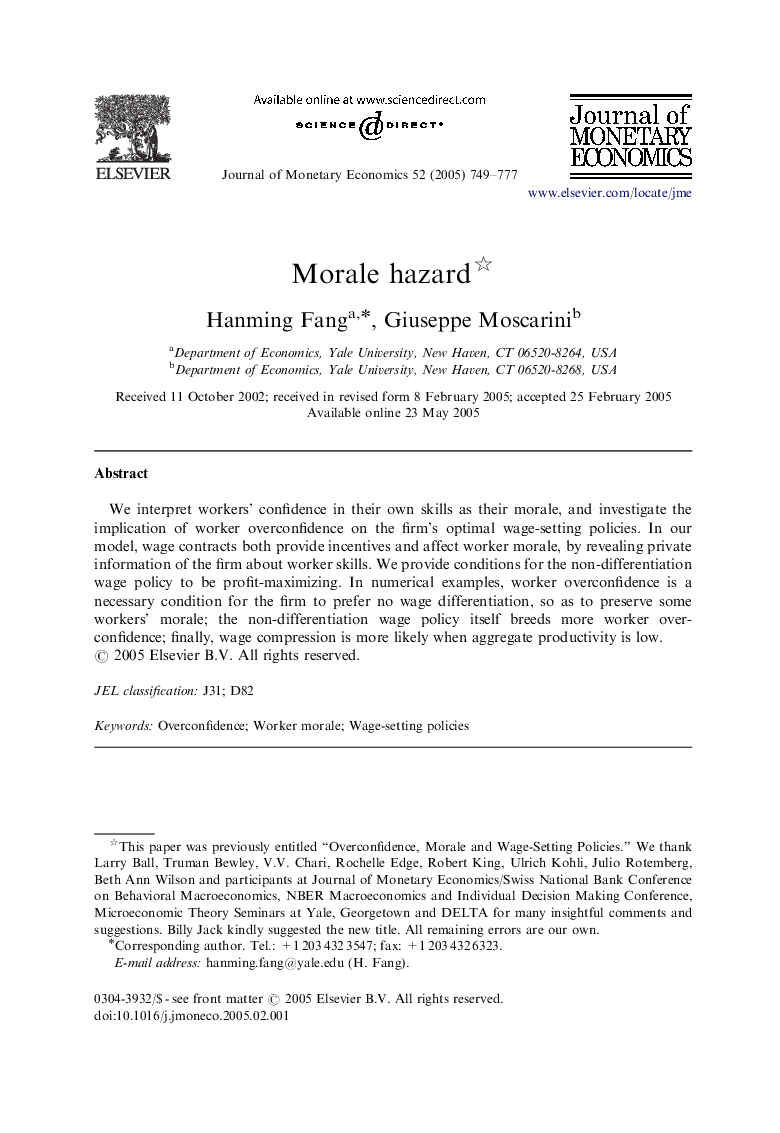| Article ID | Journal | Published Year | Pages | File Type |
|---|---|---|---|---|
| 10478486 | Journal of Monetary Economics | 2005 | 29 Pages |
Abstract
We interpret workers' confidence in their own skills as their morale, and investigate the implication of worker overconfidence on the firm's optimal wage-setting policies. In our model, wage contracts both provide incentives and affect worker morale, by revealing private information of the firm about worker skills. We provide conditions for the non-differentiation wage policy to be profit-maximizing. In numerical examples, worker overconfidence is a necessary condition for the firm to prefer no wage differentiation, so as to preserve some workers' morale; the non-differentiation wage policy itself breeds more worker overconfidence; finally, wage compression is more likely when aggregate productivity is low.
Keywords
Related Topics
Social Sciences and Humanities
Economics, Econometrics and Finance
Economics and Econometrics
Authors
Hanming Fang, Giuseppe Moscarini,
